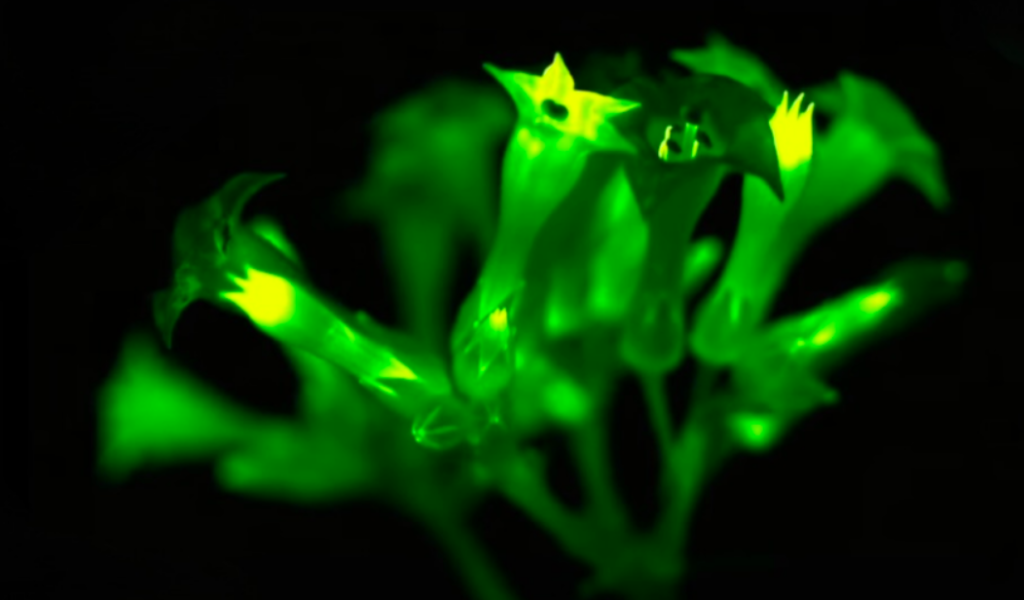

Though houseplants have been very popular lately, Light Bio’s glow-in-the-dark petunias are going to make them look a little more basic. The Department of Agriculture has formally approved the Idaho-based biotechnology startup’s sale of genetically altered, bioluminescent flowers in the United States. The beginning of shipments is anticipated for early 2024.
The bioluminescent insects, marine life, mushrooms, and other naturally occurring creatures that Light Bio draws inspiration from for its fantastic products. These light up in response to oxygen’s interaction with luciferin, an enzyme produced by the luciferase enzyme. It is believed that this contact generates light, or energy, which gives firefly and jellyfish their beloved “lit-from-within” appearance.
Before starting Light Bio, Karen Sarkisyan, a synthetic biologist, and Keith Wood, a chemist, had dedicated significant amounts of their careers to the research of bioluminescence. Sarkisyan had previously collaborated with a group of scientists to give tobacco plants glow-inducing enzymes. In the meantime, Wood and his colleagues had worked with firefly DNA to create the first genetically modified glow-in-the-dark plant in the 1980s, though it required a specific chemical to be sprayed on it in order to function.

Since then, Wood and Sarkisyan have discovered a way to cause plants to glow on their own. The caffeic acid molecule is the center of their procedure. Caffeic acid is a building block of plant cell walls and is transformed into luciferin by fungus. Light Bio is mostly concerned with this latter step. The neomycin phosphotransferase II, or NPTII, gene that transforms caffeic acid into luciferin was taken and inserted into the petunia plant by the firm. The outcome is a typical home flower that, at night or when the lights are off, emits its own neon green light.
On September 6, the US Department of Agriculture approved the sale of these glow-in-the-dark flowers after researching whether Light Bio’s petunias will draw more bugs than standard petunias. For the 10,000 people on Light Bio’s waiting list, this is wonderful news; nevertheless, it is bad news for others who worry that bioluminescent plants could damage their local ecosystems. Still, Light Bio is a step ahead of its detractors.
In their application to the Department of Agriculture, the company stated that “petunias are normally grown in human-created environments where people live and work daily, such as homes, businesses, or botanical gardens.” “In these settings, artificial lighting generally illuminates the night much more than the auto-luminescent petunias.”